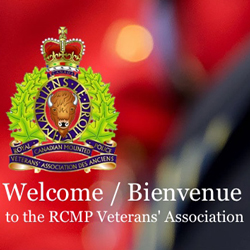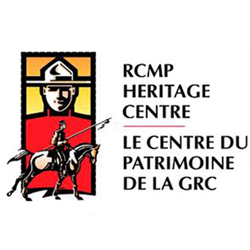Cpl. Tom Raisbeck: All Towels Were Returned – Then Some
For the RCMP Centennial in 1973, RCMP Veteran Thomas Grant Galloway Raisbeck provided an account of his time in the RCMP to the Edmonton Journal newspaper. Tom’s story is provided below for your reading pleasure.
Background Details: Tom was born on June 14, 1910 at Taber Alberta and joined the Force on December 8, 1934 at Edmonton. Upon completion of his training at “Depot”, he transferred to “F” Division until his discharged on June 15, 1946. Then on September 1946, he re-engaged on September 20, 1946 at Regina and went no serve in both “F” Division and “K” Division until his retirement in March 13, 1955. In retirement, Tom moved to Kelowna and joined the RCMP Veterans Association becoming a Life Members sometime thereafter. On January 10, 1002, Tom passed away at Kelowna, BC.
Article:
A couple of days after our return from the Calgary Stampede we were brushing up on drill in the riding school when the sergeant-major called us into close quarters to have a little chat with us.
“The CPR authorities have complained about several of ther marked towels being missing from the sleeping car we occupied enroute from Calbary to Regina,” he said.
“Now there’s a box conveniently placed over in “B” block where you can return them if you happen to have one in your possession.”
He went on to suggest that no one had been accused of stealing but that there was a possibility that they may have been taken by mistake or “one or two of you may have thought to acquire a souvenir.” He assured us that the whole matter would be forgotten if the 36 missing towels were returned. As it happened, the boys responded exceptionally well. The number of returned towels far exceeded the number reported missing.
NICE GUY
When our show career ended we then returned to rigid training. This included guarding trustee prisoners at times. These were men with good prison records who were brought to work at the barracks from the Regina jail every day.
It was during prisoners’ guard duty that I met a very nice fellow I’ll never forget. Pierre Flavelle was one of the nicest men I have ever met and one of the most cooperative trustee prisoners ever to come under my supervision. “I’m a bogus cheque artist,” he told me when I asked him what he was serving time for. He had only another couple of months to go and he’d be free. He counted on so many days off his sentence for good behavior. It was hard for me, as a recruit, to visualize such a nice young man being involved in crime.
MONOTONOUS
Something I was to learn a little later was that it takes men with nice personalities to make headway as bogus cheque artists.
Our initial training period was completed after the first three months at Depot, but for the gang who joined the force at the same time as I, it was another year before we got posted out. They just didn’t need more men out on detachments or in other division posts.
So we continued with lectures, foot and arms drill, equitation, physical training and more and more fatiques. We thought Depot days would never end.
The lectures got drier and more monotonous all the time, all except the study of the history of the force. I just couldn’t get enough of that I used to dream of the march west of those gallant fore-runners of ours. The outstanding record of the originals surely made police work easier for us who were coming on to fill the breach. It was my intention right then that I would try to leave it the same way I found it.
Not being able to put into use the things we were taught about detachment returns, criminal code, federal statutes, a lot of interest was lost. I used to get a real bang out of one of our criminal code instructors who used to have some trouble pronouncing the word “statistics” as many other people do. He realized his phonetic difficulty and would blush when he’d find the class smiling at his futile attempts. It seems someone would always find a well-framed question for him, to which the answer must contain that horrible word.

Photograph of Constable Tom Raisbeck (Reg.#12528) taken in Saskatchewan (Source of photo – Ric Hall’s Photo Collection).
At last, the time came when we were to be posted out. We had got to know our gang pretty well and there were some sad farewells when we separated, some going as far as the East Coast, some to the West coast and many were scattered about the Prairie subdivisions. I and four others went to Yorkton subdivision. Some of the guys who were in on a refresher course at the time from Yorkton looked at each other with that knowing smirk when they heard of our transfers about going to Yorkton subdivision in northeastern Saskatchewan.
Some of those who were supported to be in the ‘know’ told us it was the worst spot in the whole country.
LESSON
Whether their description was correct or not, I don’t know but one thing was certain. In the words of the NCO in charge Yorkton detachment when he greeted us the night of our arrival; “Nothing but a good policeman will last here. We’ve got everything from common assault to murder here regularly.”
Lots of work and a chance for experience was most appealing to me and that’s exactly what I got, often more night patrols than I wanted.
Horses were still being used on detachments when I first joined but the last of them was brought in from Meadow Lake in northern Saskatchewan just months before I went out of Depot. Never the less many times I used saddle horses and teams, to get around the detachment area where the primative roads were not kept open during the winter months. Believe me it was imperative that you got your directions right before starting out. I made a mistake only once.
It was 20 below and the roads were tough. I told my hired livery driver to drive south of the village of Buchanan. When I asked him to turn west at a point some six miles on he asked me whom I expected to see in this “moose pasture.” When I told him, he unveiled my great error. I should have gone six miles north not south. Insetad of being within a couple of miles of my destination, I found myself about 15 miles away. At any rate it was a nice day for driving in his cutter, I tried to convince myself. The cold crisp winter air would be good for me.
WAITED
I used that smae driver often after that and for some reason or other he always used to ask me exactly where I was headed.
Not long after we got settled at Yorkton, prisoners’ escort was one of the first real police duties we were assigned to. Then, swiftly on the heels of this, came every type of police work imaginable, including criminal investigations.
On the first trip back to Regina on escort duty, most of the boys would make arrangements to meet their girl friends from training days.

Photograph of Corporal Tom Raisbeck standing by his car (Source of photo – Ric Hall’s Photo Collection).
One of our boys became so enthralled at meeting his girl at Union Station on his first trip back that he sort of lost track of the two prisoners he had accompanied. After a couple of hours of looking around city restaurants, pool rooms and the like, our buddy decided to check in at Tow Station (RCMP detachment at Regina) and explain his situation. When he arrived at the provost’s office he pretended his train was two hours late as he produced his two prisoners, warrants and the whole bit. His two travelling companions realized our boy’s dilemma and had waited his arrived at the front door to the detachment.
TRANSFERS
After a year at Yorkton, a transfer to Canora meant a change in everything. Instead of making the odd home-brew raid as he did at Yorkton, now it was every other day, and many nights. If I’d counted the hours I put in at Canora and broke them up into eight hour days, I could have retired a couple of years before I did.
Shortly after the town of Melville contracted with the RCMP for police services, who should be transferred there but me. Something I didn’t particularly want. Subdivision said it was just temporary. It ws temporary for 4 1/2 years. I left there for Sasktoon with a wife and daily pay of $2.25 plus living allowance.
Night patrols on foot around the tow and polishing door-knobs didn’t appeal to me.


 March 12, 2015
March 12, 2015 










